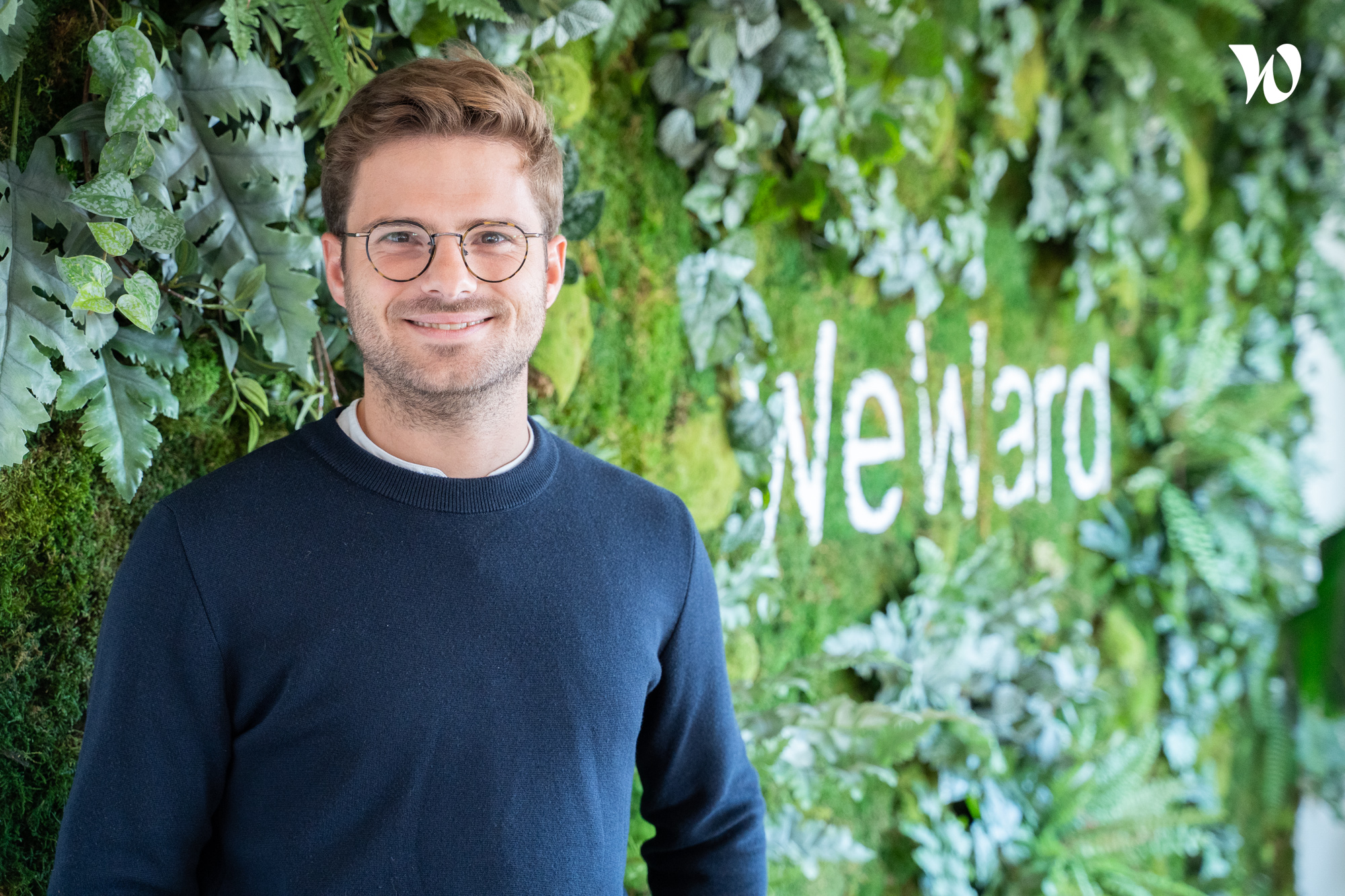Tanguy de La Villegeorges, co-founder of the pedometer application Weward, revealed his ranking of the most active French cities. While Paris comes first, Nice ranks second and gains a spot compared to the previous ranking.
Are you familiar with this application that rewards you with money for your daily steps? WeWard, which was launched in 2019, has been continuously improving since then and even dreams of going international. The city of Nice is a major contributor to the platform, as Tanguy de La Villegeorges, one of its founders, who transitioned from a “tester” to a “real user,” confirms to us.
How does your ranking work?
This ranking required meticulous and extended work. First, we started by measuring the data daily, ensuring they were representative and reliable for each concerned city. Then, an in-depth analysis was performed to ensure the quality of the collected information. This rigor allowed us to produce a precise and meaningful ranking. The process took time, but it was essential to guarantee the credibility and accuracy of the final ranking.
Whether running or walking, both activities are taken into account similarly in our ranking. However, last year, we did not produce a ranking, unlike in 2020. It varies depending on the studies we decide to conduct each year. For example, during the COVID period, we performed many studies that did not necessarily lead to rankings but highlighted significant changes in people’s habits.
What evolution do you notice among Nice users?
Nice, which was in third place in 2020 behind Strasbourg, managed to climb to the second place this year. This demonstrates that the inhabitants are walking more and more. It’s a city where we have always had strong participation, notably thanks to pre-existing partnerships, like the one with the Nice University Hospital. This partnership, for example, aimed to encourage walking among sedentary seniors by rewarding them with points. The goal was to encourage them to go out, visit the city center, and be more active, which had very positive effects on their well-being. Nice has always been a pioneering and very committed city since the start of our initiatives.
Could WeWard be the key to fighting a sedentary lifestyle and thus improving quality of life?
Exactly, that is precisely our goal! [He smiles] Currently, we have already managed to significantly increase the physical activity of our users. Of course, we do not intend to stop there. We are implementing many initiatives to go even further. Our vision is to get more people moving around the world because the sedentary lifestyle is a global problem. For this reason, we are expanding to new countries and are now present in 30 additional countries.
Where is the majority of your users concentrated?
Paris is the city with the most users, but that doesn’t mean it is the reason why it ranks first in our ranking. In fact, it is based on an average, so the total number of users does not directly influence the result. What puts Paris at the top is mainly the fact that the inhabitants use public transportation massively. We observe that people walk much more when using these modes of transportation, unlike those who mainly travel by car. The latter leave their homes, get into their vehicles, and walk hardly at all. In Paris, daily commutes often involve walking to reach a subway, bus, etc., which explains why Parisians naturally walk more than people in rural areas, for example.
Do the 20 million WeWard users walk more on average than others?
We have measured a significant 25% increase in walking time among our users. This means that before using WeWard, people walked less, and after integrating the app into their daily lives, they increase their walking time by an average of 25%. This progress is explained by the motivation generated by our gamification system. Indeed, users must reach different milestones, prompting them to walk more to reach their goals.
Many users tell us they go for a walk in the evening or take an additional neighborhood loop to reach their daily goal and level up. Some even choose to get off the bus one stop earlier to walk a bit more. Thanks to WeWard, we, therefore, have a tangible impact on people’s motivation to walk more daily.
You reward your users’ steps with money, how do you finance yourself in return?
Our model relies on strategic partnerships with brands, particularly those focused on well-being, health, and similar domains. These brands seek to increase their visibility within our application, which benefits from high traffic and a wide audience. In return, they pay for this visibility.
Thanks to these partnerships, we have been able to create a business model that benefits all parties involved: brands gain visibility among a targeted and engaged audience, while we finance walking and the development of our company. Thus, we have been able to build a sustainable business while encouraging an active and health-conscious population.
What good memories do you have of the journey so far?
I am extremely proud of the path we’ve traveled. At the beginning, our goal of fighting a sedentary lifestyle was a real gamble, almost crazy. The idea of rewarding, even paying people to walk seemed unbelievable. Yet, today, we can see the positive impact we have managed to create, both on the health of users and the funding for charitable projects. One aspect I am most proud of is our collaboration with associations. We have already donated over a million euros to fund concrete projects. For example, we were able to finance the complete construction of a school in Nigeria, thanks to user participation. This entirely virtual model has positive repercussions on ecology, city centers, and above all, global solidarity. WeWard is therefore much more than a simple application; it is a driver of positive change!


